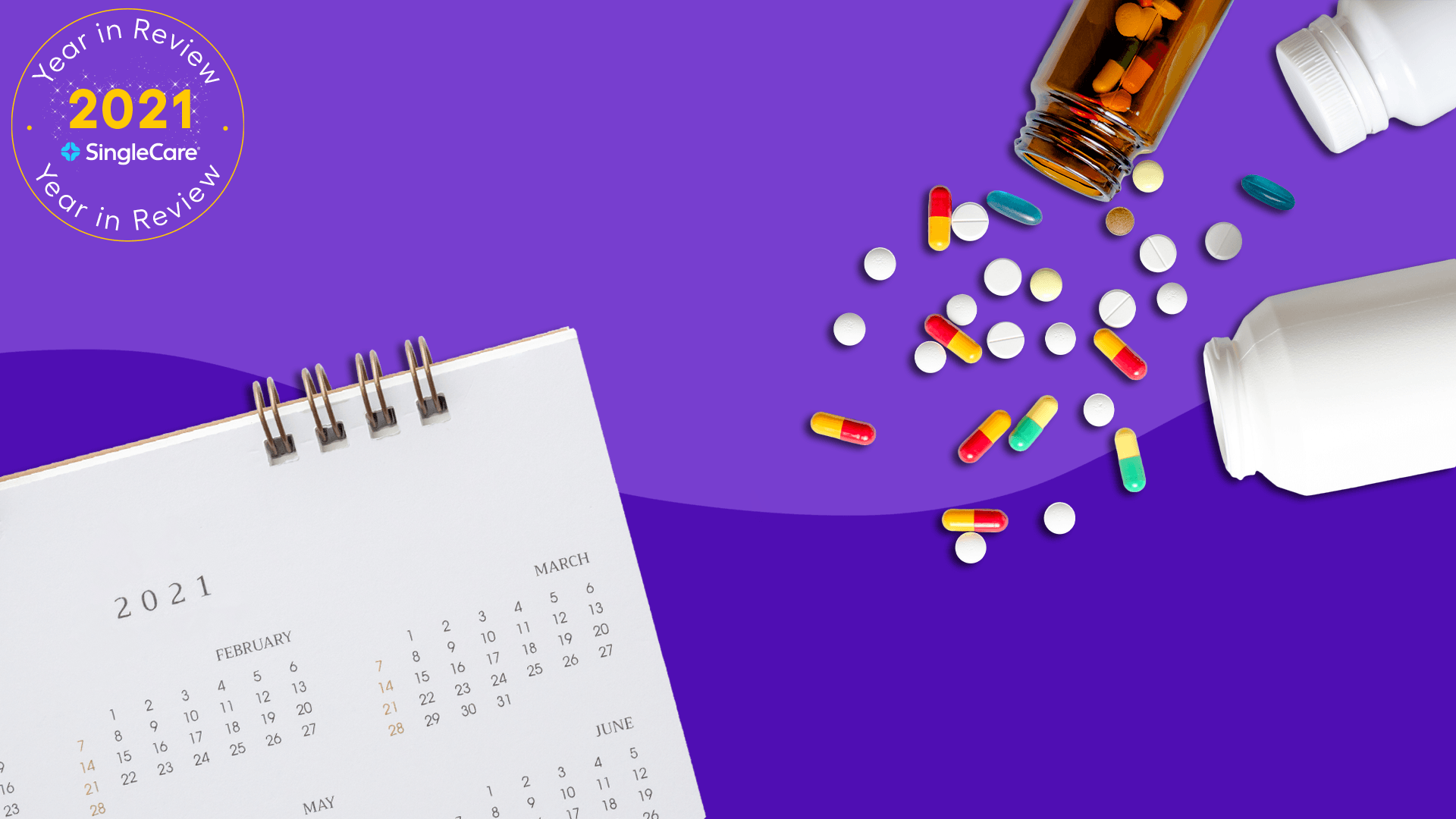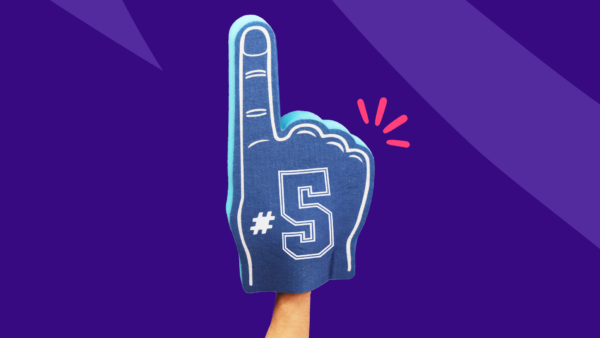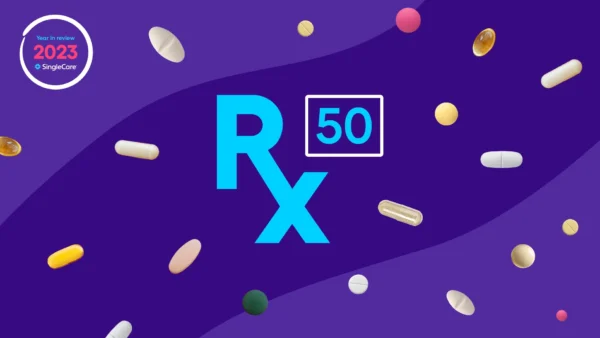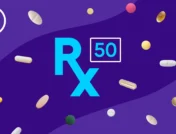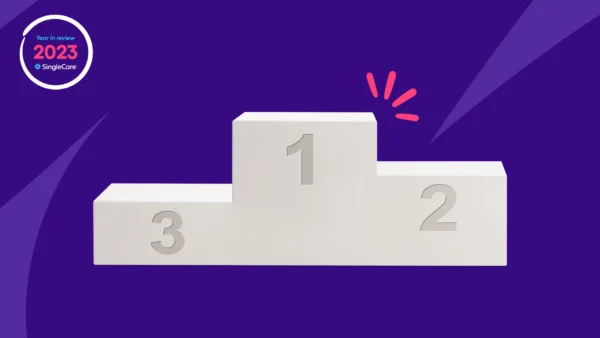Each year, SingleCare offers savings on thousands of prescription medications. That includes the 50 most prescribed prescriptions in 2021. Those medications range from a workhorse antibiotic to an anti-anxiety medication that may have seen an uptick this year because of COVID-19.
50 most prescribed drugs of 2021*
- Amoxicillin (Amoxil)
- Vitamin D (Drisdol)
- Ibuprofen (Motrin)
- Levothyroxine (Synthroid)
- Lisinopril (Prinivil, Zestril)
- Amlodipine (Norvasc)
- Prednisone (Deltasone)
- Amphetamine/dextroamphetamine (Adderall, Adderall XR)
- Albuterol sulfate HFA (Ventolin HFA, Proair HFA, Proventil HFA)
- Alprazolam (Xanax)
- Cyclobenzaprine (Flexeril)
- Azithromycin (Zithromax Z-Pak)
- Gabapentin (Neurontin)
- Cephalexin (Keflex)
- Cetirizine (Zyrtec)
- Folic acid
- Hydrochlorothiazide (Microzide)
- Metformin (Glucophage)
- Atorvastatin (Lipitor)
- Amoxicillin/clavulanate (Augmentin)
- Vitamin D3 (D3-50)
- Benzonatate (Tessalon Perles)
- Losartan (Cozaar)
- Metoprolol succinate ER (Toprol XL)
- Trazodone (Desyrel)
- Clonazepam (Klonopin)
- Freestyle libre 14 day monitoring system
- Zolpidem (Ambien)
- Fluconazole (Diflucan)
- Methylprednisolone dose pack (Medrol)
- Sulfamethoxazole/trimethoprim DS (Bactrim DS)
- Metronidazole (Flagyl)
- Furosemide (Lasix)
- Ferosul (ferrous sulfate)
- Metoprolol tartrate (Lopressor)
- Methocarbamol (Robaxin)
- Lisinopril/hydrochlorothiazide (Zestoretic)
- Doxycycline hyclate (Vibramycin)
- Naproxen (Naprosyn)
- Sertraline (Zoloft)
- Meloxicam (Mobic)
- Synthroid (levothyroxine)
- Loratadine (Claritin)
- Famotidine (Pepcid, Pepcid AC)
- Armour thyroid
- Lorazepam (Ativan)
- Triamcinolone acetonide (Nasacort allergy 24 hour)
- Chlorhexidine gluconate (Peridex, Hibiclens)
- Escitalopram (Lexapro)
- Diazepam (Valium)
See the most prescribed drugs of 2020 here. Learn more about the top 10 drugs of 2021 below.
1. Amoxicillin
Brand names: Amoxil, Trimox
Used for: Bacterial infections
Amoxicillin, a penicillin antibiotic, was the number one prescription filled by SingleCare users in 2021. This antibiotic is used to treat multiple bacterial infections, including pneumonia, tonsillitis and ear, nose, throat, skin, and urinary tract infections. It can also be used with clarithromycin and a proton pump inhibitor to treat H. Pylori, a bacterial infection in the stomach.
One of the reasons amoxicillin is such a go-to antibiotic is that it can treat so many infections and it’s safe enough to use for kids and while pregnant or breastfeeding.
Many medical professionals are seeing antibiotic resistance so it’s crucial to only take antibiotics when necessary. And don’t stop taking them early. “It’s important to finish the whole course of the antibiotic—not drop it when you feel better—to avoid superinfection,” says Inna Lukyanovsky, Pharm.D., an expert in gut and hormone health.
2. Vitamin D
Brand name: Drisdol
Used for: Hypoparathyroidism, osteomalacia, vitamin D deficiency
More than 40% of Americans have a vitamin D deficiency. That’s not a problem for everyone, but a severe deficiency can lead to bone density loss and rickets (a softening of the bones in children). The body can’t absorb calcium without vitamin D. Vitamin D also helps the immune system fight off bacteria and viruses. Many people take vitamin D supplements that are available over-the-counter, but when it’s prescribed, it’s usually for hypoparathyroidism. That’s a condition that causes calcium deficiency, weakness, fatigue and muscle cramps and spasms, Dr. Luykanovsky says. Vitamin D is also prescribed for osteomalacia, a condition where calcium is lost from the bone.
Some people are more at risk for vitamin D deficiency than others. That includes older adults, people with dark skin, people who don’t get much sun exposure, and people with diseases like Crohn’s or celiac, who may have a harder time absorbing vitamin D. If you’re at higher risk for vitamin D deficiency, you should have your vitamin D levels tested regularly.
RELATED: How much vitamin D should I take?
3. Ibuprofen
Brand name: Motrin
Used for: Pain, inflammation
Open almost anyone’s medicine cabinet and you’ll likely find ibuprofen, which is well known by its brand names Advil (available OTC) and Motrin (available OTC and by prescription). This nonsteroidal anti-inflammatory drug (NSAID) is sometimes prescribed by a doctor, in a higher dose than what is available over the counter. Ibuprofen works well to lower temperature, reduce inflammation, and treat pain such as headaches or back aches. “It’s been a go-to pain reliever and anti-inflammatory for decades,” Dr. Luykanovsky says.
Ibuprofen usually has very few side effects for short-term use. One of the more common ones is an upset stomach. “It’s important to eat before taking ibuprofen to avoid GI upset, especially for those with sensitive stomachs,” Dr. Luykanovsky says.
4. Levothyroxine
Brand name: Synthroid
Used for: Hypothyroidism
This thyroid replacement hormone is mainly used to treat a low thyroid level (hypothyroidism). Hypothyroidism is common, with an estimated 5% of Americans having the disease. Left untreated, hypothyroidism can cause obesity, infertility, joint pain, and heart disease. Some recent research from Mayo Clinic suggests that levothyroxine may be being overprescribed for people with normal thyroid levels or mild hypothyroidism.
If you’re taking levothyroxine (generic Synthroid), you have to be careful about what other medications or supplements you’re taking because they can make the drug less effective, Dr. Luykanovsky says. That includes antacids that contain calcium, magnesium, or aluminum.
5. Lisinopril
Brand names: Prinivil, Zestril
Used for: High blood pressure, heart failure
This blood pressure medication is part of a group of medications called ACE inhibitors. They help to relax the veins and the arteries to lower blood pressure. Doctors prescribe lisinopril mainly for people with high blood pressure, heart failure, diabetic kidney disease, and those who have had a heart attack, Dr. Luykanovsky says.
Brand names of lisinopril include Prinivil and Zestril.
High blood pressure is very common—47% of Americans have hypertension. And high blood pressure is one of the main risk factors for heart disease and stroke, the leading causes of death in the United States.
People who take lisinopril need to have their potassium levels checked because lisinopril can raise potassium levels in the blood. That can cause stomach pains, fatigue, muscle pains, and even a heart attack. ACE inhibitors, such as lisinopril, also can sometimes cause a dry cough as a side effect.
RELATED: Lisinopril side effects and how to avoid them
6. Amlodipine
Brand name: Norvasc
Used for: Chest pain, high blood pressure
Amlodipine is the generic version of Norvasc. This calcium channel blocker is primarily prescribed for high blood pressure (hypertension) or chest pain. It works by relaxing and widening the blood vessels. “Since hypertension is a leading cause of heart complications and death, amlodipine is a valuable drug for managing blood pressure,” says Karen Kier, Ph.D., professor of pharmacy practice at Raabe College of Pharmacy at Ohio Northern University.
One of the more common side effects of amlodipine is swelling in the hands, feet, and lower legs, Kier says. Amlodipine may be prescribed more often lately because it works well when taken with other blood pressure medications, Kier says. Many people have to take more than one medication to lower their blood pressure, especially since new guidelines in 2017 lowered what is considered high blood pressure from 140/90 to 130/80, she adds.
7. Prednisone
Brand name: Deltasone
Used for: Inflammation, skin diseases, eye diseases, autoimmune diseases, allergies, asthma
Prednisone is a corticosteroid, a type of hormone steroid that is used to treat inflammation. It can help manage everything from “allergic reactions to asthma flare-ups,” Kier says, and to battle itchiness from poison ivy to psoriasis. Prednisone has been around for decades, but in the last two years, “corticosteroids have also been used extensively for managing COVID-19 patients with moderate to severe symptoms,” says Kier.
Prednisone, like other corticosteroids, isn’t meant to be used long-term. It works well and quickly, but “it can have some significant long-term side effects such as bone loss,” Kier says. Prednisone can also cause swelling and raise your blood sugar levels.
8. Amphetamine/dextroamphetamine
Brand name: Adderall, Adderall XR
Used for: ADHD, narcolepsy
This medication is the generic version of Adderall, a stimulant used to treat attention-deficit hyperactivity disorder (ADHD), and the sleep disorder narcolepsy. “It helps improve focus in those with ADHD,” Kier says. It can be used in children and adults.
One reason for the uptick in prescriptions is that many more adults are being diagnosed with ADHD. “These are adults who may have had ADHD as a child, but went undiagnosed,” Kier says. Between 2007 and 2016, for example, ADHD diagnoses in adults increased by 123% from .43% to .96%, according to a JAMA study.
9. Albuterol sulfate HFA
Brand name: Ventolin HFA, Proair HFA, Proventil HFA
Used for: Wheezing and shortness of breath caused by breathing problems due to conditions like asthma or COPD
Albuterol sulfate is a bronchodilator, a medication that “opens up the lungs to help shortness of breath and improve lung function,” Kier says. It’s mainly used for the millions of people with asthma or chronic obstructive pulmonary disease (COPD). With COVID-19, albuterol sulfate has also found a new use. It’s being used to help people who have shortness of breath while sick with COVID-19, Kier says, and those who have developed asthma after having COVID.
Albuterol sulfate can potentially “increase heart rate, blood pressure and cause shaking of the hands,” Kier says.
10. Alprazolam
Brand name: Xanax
Used for: Anxiety, panic attacks
Alprazolam (generic Xanax) is a benzodiazepine medication that can reduce anxiety and panic attacks. “It’s been commonly used for anxiety for a while, but COVID-19 may have increased some of the usage because of the mental health issues that have arisen during the pandemic,” Kier says.
Alprazolam is a controlled substance and can be habit-forming, especially over long periods of time, so it should be taken carefully. It depresses the central nervous system (CNS) and shouldn’t be taken with any other medications or substances that depress the CNS—like opioid painkillers or alcohol—because mixing those drugs can cause breathing problems, Kier says.
*Most prescribed drug information reflects the scripts most filled through SingleCare from Jan. 1, 2021 through Oct. 31, 2021, excluding opioids and weight-loss drugs.



